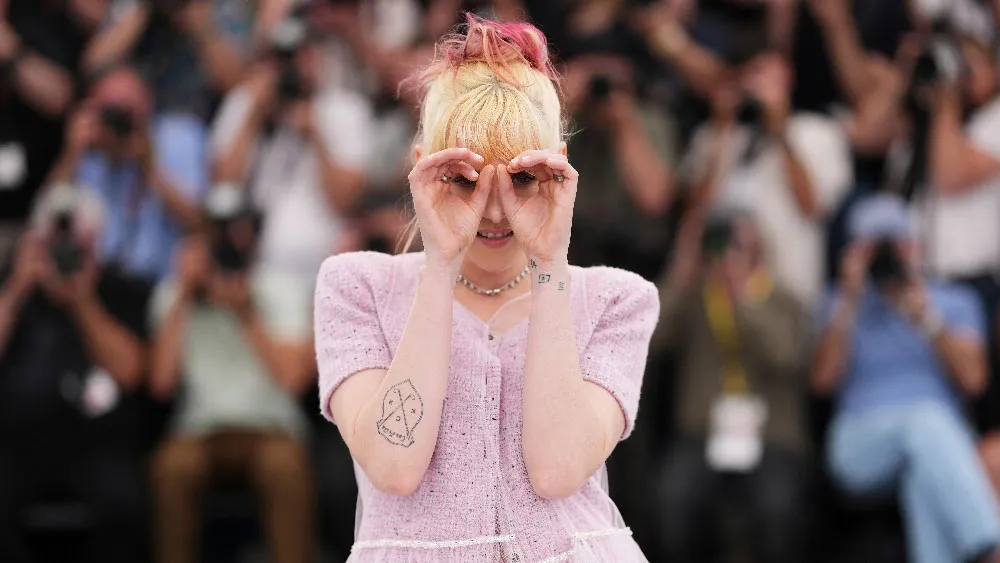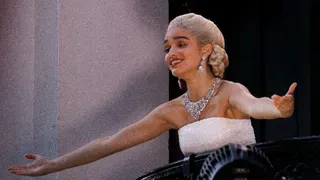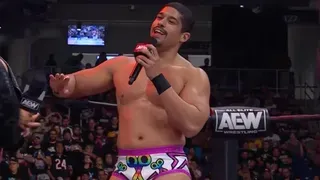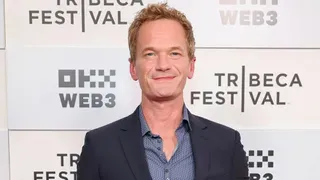July 8, 2011
Activist's film profiles gay life in India
Lewis Whittington READ TIME: 3 MIN.
"I wished that I had told you, though I don't know what words I would have used. Maybe I would have said that I just don't like men or maybe I just would have said I'm in love with a woman."
This is how out filmmaker Sonali Gulati imagines telling her deceased mother that she was gay.
In her beautifully evocative film "I Am", Gulati embarks on a personal journey dealing with her mother's death, leaving a closeted life in India and establishing herself as a filmmaker and international lesbian activist.
"My reason for making the film first was that I hadn't come out to my mother and it was unfinished business for me," Gulati said in a phone interview from Virginia last week. when she talked to EDGE about why she had to make the film.
"We were very close. I thought a lot about how she would have reacted. And I had the feelings of regret not coming out to her," she confessed, adding that she is still conflicted about it. "But also with a sense of relief that had I come out we would have probably had problems over it."
Different than the West
Gulati teaches filmmaking at Virginia Commonwealth University and has previously won awards for her short films. "I Am" is her first full-length documentary and has won prizes at the Kashish Film Festival and IFFLA.
"I Am" also delves into the lives of a cross-section of Indian gay men and women and their relationships after coming out to their families and communities. Gulati's eloquent cinematography makes "I Am" visually arresting. She shot many scenes of gay Pride in an otherwise entrenched homophobic society.
"It's very different from the West. We have Pride marches like we do in the West, for instance, people who organize will provide masks for people to come out, but protect their identity. "
Gulati interviewed 21 people and pared it down to nine profiles for the film, including interviews with Prince Manvendra Kumar Singh, who came out publicly rather than be forced by his parents into another failed pre-arranged marriage.
The filmmaker was fortunate enough to have been there when India struck down an archaic British law Section 377 that criminalized homosexuality. A relic from British colonialism, it remained on the books until 2009. "I just happened to be in India at the time. I got a phone call that morning saying 'the judgment is going to be announced today, so be ready with your camera.'"
"It's a British law. When the rule was being fought, the conservative lawyers who wanted to keep the law said 'Oh, There are no gay people in India, being gay and lesbian is a real western concept and the lawyers on the other side said 'Are you kidding me, it's the law that is western. Gay people have always been here and we have art, literature and history to prove it." she said.
"There is a lot of work being done by the queer community there. Just the decriminalization...it took nine years in the high court and it's now being challenged. There is a long road ahead. Fortunately there are parents of queer south Asians who are leading the fight in the Supreme Court for the rights of their children, which is pretty groundbreaking."
Gulati, who is hitting many of the gay film festivals around the globe this year, including being in Philly for a post-screening Q&A. She doesn't think there will be a theatrical release of "I Am" in India, but is working to get it shown on one of the country's cable networks.
screening update- Gulati was greeted by an almost full audience for the screening in Philly, who gave her a standing ovation when she came down the aisle for the Q&A after the film.
"I Am" screens as part of QFest on Saturday, July 9, 12:30 PM at the Ritz at the Bourse. For more information, visit Watch the trailer for "I Am":
Lewis Whittington writes about the performing arts and gay politics for several publications.







